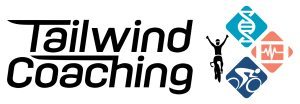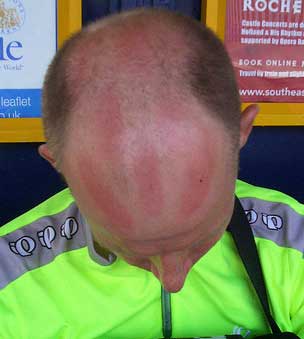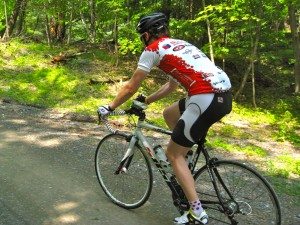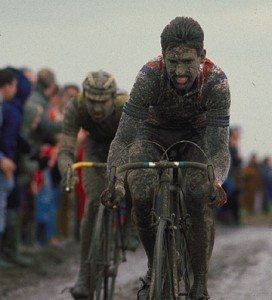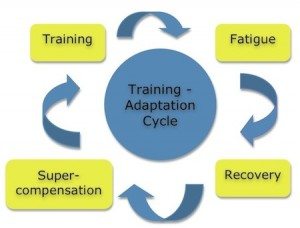Podcast #39 Addendum: High Fat Diets and Performance
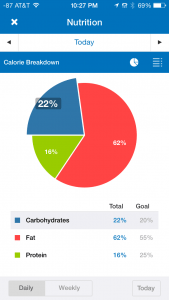 I've got to say, there are some really smart listeners out there. Boy did you guys respond to my last podcast (Q&A number 2), especially regarding the last segment on fueling for a century. Specifically, I referenced a study that found a 2% improvement in cycling performance/power output following glycogen depleted training. A couple of you rightly questioned my analysis of that study. Rather than write a lengthy post on the topic, I've decided to create an addendum podcast (originally designed to be the first segment of my next podcast, but after realizing the length, I decided to make it a stand along podcast) in order to address the issue.
I've got to say, there are some really smart listeners out there. Boy did you guys respond to my last podcast (Q&A number 2), especially regarding the last segment on fueling for a century. Specifically, I referenced a study that found a 2% improvement in cycling performance/power output following glycogen depleted training. A couple of you rightly questioned my analysis of that study. Rather than write a lengthy post on the topic, I've decided to create an addendum podcast (originally designed to be the first segment of my next podcast, but after realizing the length, I decided to make it a stand along podcast) in order to address the issue.
Below I've included the study I reference in the podcast:
Our results demonstrate that AMPK-α1 and AMPK-α2 activity and fuel selection in skeletal muscle in response to exercise can be manipulated by diet and/or the interactive effects of diet and exercise training.
This essentially relates that we can sort of “eat ourself into fitness.” Cool, huh?
SHORT-TERM (<1 WK) MANIPULATION of dietary macronutrient intake is associated with marked changes in skeletal muscle gene expression (1, 5, 24), substrate stores (36), metabolic flux, and fuel oxidation (10, 22, 23). Exercise training also results in striking modifications in muscle gene expression (14), energy reserves, and the relative contribution of fuels to the energetic demands of muscle (9). Accordingly, the extent to which acutely altering substrate availability might modify the training impulse has been a key research area among exercise physiologists and sport nutritionists for several decades (for review, see Ref. 19). Indeed, evidence is accumulating that nutrient manipulation can serve as a potent modulator of many of the acute responses to both endurance (15) and resistance exercise (7, 11).
So basically, if you eat well and train intelligently, you can turn yourself into a monster. However, it also shows that if you eat poorly (I.E. a carbohydrate laden diet that promotes free radical production and inflammation) you can probably do more to hinder your performance than help it.
As always, if you enjoy what you hear, head over to the Tailwind Coaching Podcast on iTunes and rate it 5 stars. Don't forget to post any questions to the Tailwind Coaching Facebook page, and don't forget to support our sponsors and help to keep this podcast free.
With the summer here, it's time to get serious about your summer fitness! Check out my modular training plans in my online store and get started on the path towards killer criterium fitness today. And don't forget to save 10% with the coupon code in this week's podcast.
